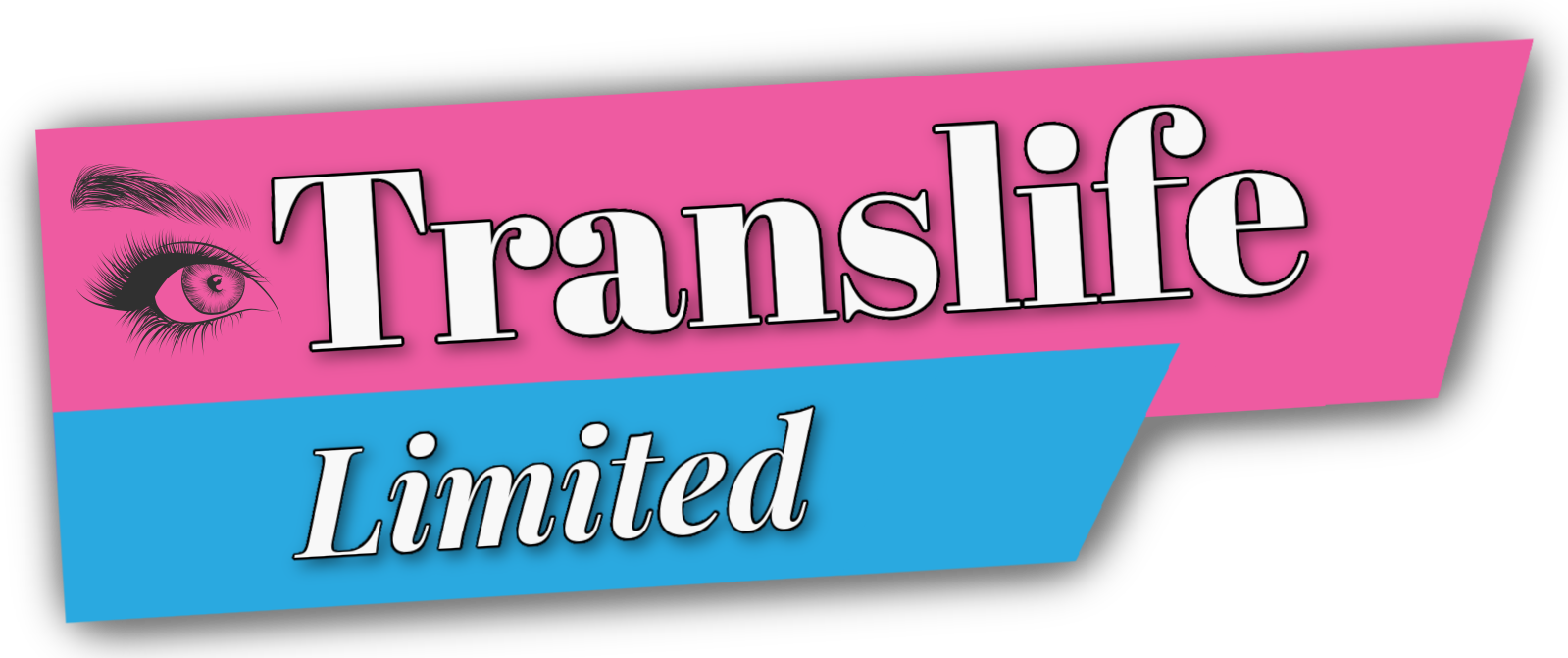 The recent Pride celebrations have provided many positive examples of some of the trans-population across the UK, and whilst it is good to see a greater acceptance of all things trans, let us not forget that there is still another side to the experiences of many trans people. Aside from all the stresses caused by accessing treatment through the NHS currently for those who wish to seek a medical transition, there is the often less discussed problem of if and how we ‘come out’ to loved ones. And if we do, might we find ourselves thrown into a difficult place within our life. Time and time again I see the impact this can have on the mental wellbeing of all those involved.
The recent Pride celebrations have provided many positive examples of some of the trans-population across the UK, and whilst it is good to see a greater acceptance of all things trans, let us not forget that there is still another side to the experiences of many trans people. Aside from all the stresses caused by accessing treatment through the NHS currently for those who wish to seek a medical transition, there is the often less discussed problem of if and how we ‘come out’ to loved ones. And if we do, might we find ourselves thrown into a difficult place within our life. Time and time again I see the impact this can have on the mental wellbeing of all those involved.
I was reminded of this a week or two ago when my partner and I were being interviewed for BBC Radio 4. We had been approached to talk about what it is like for a couple where one of the partners has transitioned (that’s myself) and the relationship has survived the process. My partner Tina and I have known one another since 1996 and she has known that there was this part of me that didn’t identify very comfortably with male culture for the entirety of the relationship, I transitioned back in 2011, and we married in 2016.
During the interview I was asked if my situation was common among trans people in relationships with cis-partners, and did many couples stay together following ‘coming out’ and or transitioning? Well my job as a Psychotherapist / Counselor provides me with plenty of examples of the hard realities and the difficulties we face once we disclose the burden we have been carrying around for long parts of our lives. And whilst it can be a massive relief to finally unburden ourselves, the relief can be short lived as we then must deal with the impact of partners, and family members’ reactions to our disclosure.
I have noticed during my client work (and I cannot generalize but these are my observations) that the younger generations find it a little easier to be accepted in this ‘coming out’ process. I think this is due to the higher profile of transgender people in the public eye in recent times and wider group support (including online). Plus the fact that young people are still forming the shape of their futures and so making their gender identity fit into that future can be a little bit easier for them. Whereas those who come out in there 30’s, 40’s, and 50’s can be seen to have been ‘living a lie’ as their lives are more established and may have followed the conventional pathways, you know a partner, 2.4 kids, Job, house etc. There’s been a lot of financial, physical, and emotional investment in creating and holding that life together. So, when the disclosure is made it is of little surprise that things can get shaky for all concerned.
I’m often asked by clients what is the best way to ‘come out’ and the short answer is that there is no one best way to do this. How can there be, because every one of us is doing our gender identity in a very personal way, our physical life circumstances are unique to us, and we need to factor in how other parties are likely to react to the disclosure. As much as we cannot find the perfect time to ‘come out’ we can consider the following points when deciding if this is the right step for us to be taking:
Ask yourself, is this essential for me to be disclosing this right now?
What is it I hope to achieve from disclosing this? More transparency in the relationship, wanting to transition, or something else?
Think about how the person you plan on telling is likely to react. How they react to things which might be considered outside the normality of life. It’s worth considering that just because they are accepting of trans generally in life, they might not find it as easy to deal with when it is someone they know, family member, or are married to!
Think about if you tell them and it doesn’t turn out positive, what might be the implications? Have a plan for dealing with things immediately, perhaps a friend you can go and stay with or someplace safe for you to retreat and stay. Keep yourself safe if you’re feeling vulnerable.
It’s possible once the disclosure is out there that it might get emotional, if so don’t be tempted by trying to labor the point of all the things you want to say to try and make it better. Sometimes “less is more” in what you say. Don’t overload the person you have just told.
Give them time. Calmly say that “You appreciate that this can be a lot for them to take in and get their heads around, so would it help to stop talking about this for the moment or not? Find out what they need so they feel included.
Time can be your ally. It’s unlikely that this is going to be resolved in one conversation. So be prepared to take your time and have several conversations until you both know where things stand. Be prepared for the long haul it could take days, weeks, months or even years to get the relationship into a positive place.
And finally, have reasonable expectations of how they will react once they have been told. Remember it might have taken along time for you to understand and ‘come out’ to yourself, so allow that this could be the case for them too.
‘Coming out’ is never easy, but with a bit of planning you can limit the damage that this conversation may have. And a final thought, remember that when an individual ‘comes out’ and or transitions everyone in that person’s life has a forced transition placed upon them in because their relationship is going to be different in some way to how it had been, so give them plenty of time to adapt. Trans people become quite adept at waiting.
Madison-Amy Webb
The trans Therapist is Madison-Amy Webb
Madison-Amy Webb is a woman with a trans history. She is a BACP Accredited Counsellor, Psychotherapist, MBACP, and on the Voluntary Register for therapists. She is a Clinical Supervisor, Mental health Trainer & Consultant. She splits her time between working in Private Practice & Consultancy, and training. She has considerable experience exploring her own Gender Identity and supporting others with their own issues. She is currently writing a book which debunks a lot of the myths that exist about how society understands gender identity.
Mob: 07891 400934 Email: madison@transitionscounselling.co.uk www.transitionscounselling.co.uk


This is a very interesting article, especially for me, who didn’t realize what I needed to do with my gender dysphoria until well into my 40’s, when my life was already cemented as a male to my friends, co-workers, family, etc. I need very much to transition, but never did because the very idea of coming out to everyone after all that time was extremely overwhelming, I fought with this for a long time after that and still do, but have decided not to transition, as that would put me over the top emotionally and mentally. I still maintain my transgender identity, but present as a a male, which takes me to a safer place. Having said that, I have become very involved with the trans community in my area and have had extreme success in coming out as transgender to all who are involved in the area of trans activism, which is what i have devoted my time to now. I still dress up on occasion at home, but just knowing who i am on the inside and accepting that has made my life easier. I never really explored my feelings with a professional. Just had to work things out for myself until i discovered a comfortable setting with how to express my inner feelings. Thanks for the article and i will look forward to perhaps setting up some time with Ms. Webb to further discus my deep seated feelings.
For the younger trans folk, the internet is a great place to go to research the whys, hows, and ways to move forward with the female persona that is so present in all of us.
Thanks for your comment Robbie and glad you enjoyed the article. I think you make a really important point about knowing who you are inside. At the end of the day that’s really what is most important, understanding and accepting yourself. And good on you for getting involved with the trans community locally to help and support others!
Paul(a) – Robbie Kay’s story is similar in lots of areas to mine, however I perhaps would medically transition if my health was up to it but with a severe heart failure surgery would be too risking and I’m on so many medications with such an array of side effects I couldn’t face hormone therapy too.
I found your article very interesting I recently saw my GP and told him about my gender issues he was very understanding and despite my age, I am in my late sixties he said he would refer me to the gender clinic at Charting cross. I have heard nothing very frustrating as I feel time is not on my side.
I have been dressings a female since I was a boy I have always felt happier dressed as a female my father used to tease me as a child calling me Jennifer a name I use to this day I spent time in the army and various other employment lastly in the NHS. I have retired to look after my disabled wife
My wife and some family members are aware of my situation I only dress as a female when I am on my own but am increasingly wanting to be female but have not had the courage to come out. I do not know where to go from here. I feel so happy and comfortable dressed as a woman but so frustrated that I can’t be a full time woman.
I have been informed the hospital waiting time is 12 months so don’t know what to do I can relive the tension by slipping in to a dress and some make up for some of the time but its only a temporary fix
I am a very shy introvert personand don’t mix well with others I have found a friend on tv chic she warns to meet me but that’s difficult with my current situation . Sorry to go on so yours
Jennifer.
I used to dress in my mothers cloths 12-15. I got married in 2003 I’m NOT GAY y wife only lets me wear stockings, but I feel I want to dress up completely with Make up.
From a different perspective, I have known people with longstanding family problems and castrating mothers who have chosen to be seen publicly as Trans as the less humiliating option, rather than be publicly seen as a castrated or humiliated male. This can be the “solution” to family problems they would rather not deal with as it risks severing family ties should they confront the issues. Some pre-Trans have developed and even have diagnosed mental health problems while living at home and afterwards directly as a result of family problems which remain unresolved. In fact, this is the “solution”. Becoming Trans and focussing on displayed gender to the extent of surgery does not say very much for our mental health system, especially when vast amounts of tax payers money has been used for this “solution”, and this is done even accounting for previously diagnose ongoing mental health issues.